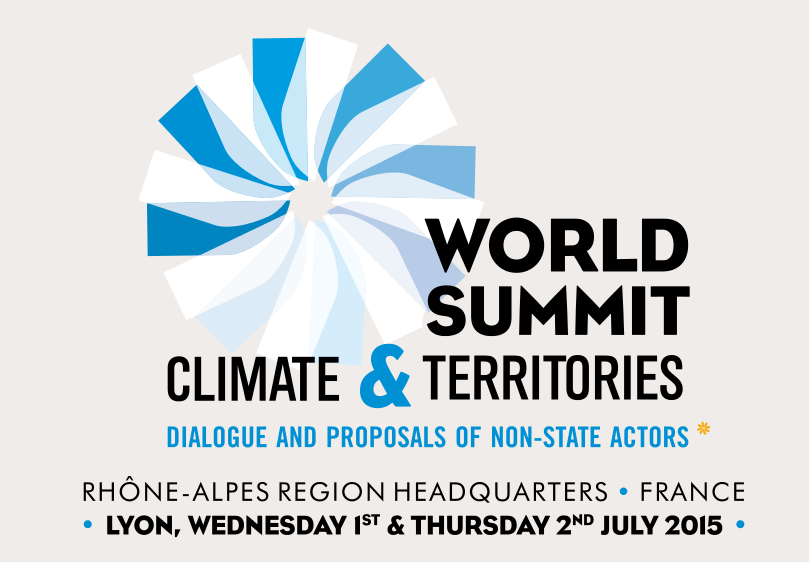World Summit Climate and Territories – A successful workshop on “Transport and Mobility”, co-organized by CODATU
 The
The
World Summit on Climate and Territories was held in Lyon (France) on 1st and 2nd of July, with the support of the Rhone-Alpes Region. More than 1400 stakeholders from 73 different countries attended the summit, showcasing the incredible diversity among local authorities, NGOs and Civil Society.
CODATU actively participated to the event, notably through its “Transport and Mobility” workshop.
The results of this two-day event, which was preceded by months of discussions in each of the workshops, comprises:
- A joint declaration on the importance of a territorial approach to combatting climate disruption and the inextricable link between the challenges of climate and development. To date, this declaration has received the most signatures in the history of negotiations as part of the United Nations Framework Convention on Climate Change (UNFCC).
- Strong commitments from networks of territorial authorities to reduce greenhouse gas emissions in their territories in the short- (2020) and long-term (2050);
- Specific proposals, informed by concrete actions in the field, on the major themes of the climate talks (economics, adaptation, fiancing, and so on). The Summit on Climate and Territories has thus made an important contribution to building and strengthening coalitions of stakeholders in the main areas of action (transport, forests, sustainable housing, decentralised cooperation, etc.).
The very positive outcomes of the “Transport and Mobility” workshop co-organized by CODATU
During the Summit, CODATU and FRANCE NATURE ENVIRONNEMENT conducted a workshop in order to adress the challenge of reducing GHG emissions from Public Transport. The panel insisted on the importance to fully empower subnational entities so that they can implement policies aiming at:
- Reducing the need for unnecessary urban travel, particularly those made by private cars through a better articulation between city and transport planning and the promotion of alternatives to transport (home working, modulation of working time, development of mixed areas);
- Prioritising investment in resilient transport infrastructure that will avoid induced mobility resulting in an increase of GHG emissions and a deterioration of local eco-systems;
- Promoting a modal shift to active modes, public transport and alternative transport modes (rail, waterborne) for passengers and goods (last mile delivery) and a structural change in vehicle use (car sharing, car pooling);
- Improving the energy efficiency of transport vehicles, in particular through the acceleration of significant technological advances (electric mobility, among others), enabled through traffic regulation (roadworthiness, speed limits, Low Emission Zones, car free zones, emission and gas standards, etc.);
- Involving civil society and consider user associations as social experts able to help reduce transport inequalities (age, gender, health, income) and promote a more inclusive mobility;
Thanks to the participation of major political leaders, strong recommendations and commitments were made:
PROGRAMME OF THE WORKSHOP:
9H00-9H15: INTRODUCTION – Presentation of the declaration’s draft and focus on daily mobility
- Julien ALLAIRE (CODATU)
- Michel DUBROMEL (FNU)
9H15- PANEL 1 : Needs for Urban Planning
- Adama Sangare, Mayor of Bamako (Mali)
- Mr. Hibi Eden, Member of the Kerala Legislative Assembly (India)
- Mr. Roland Ries, Mayor of Strasbourg (France) – CUF
9H55 – PANEL 2 : Challenge of Modal Shift, from private cars to alternative modes
- Patricia Macedo, Prefeitura de Fortalez (Brazil) – ICLEI
- Louis Negre, Vice-President of Nice Metropolis (France) – President of GART
- Tikender Panwar, Shimla Municipal Corporation (India) – ICLEI
10H55 – PANEL 3 : Energy Efficiency of motorised trips
- Pierfrancesco Maran, Deputy Mayor for Environnment and Mobility of Milan (Italy) – C40
- Pierre Serne, Vice-President of Ile-de-France Region (France) – CODATU
- David Heurtel, Minister for Sustainable Development, Environment and fight against climate change, Quebec (Canada) – nrg4SD
11H30 – Discussions on the text
12H00 – END
Interviews during the summit:
Interview (in french) of Julien Allaire, Executlve Manager of CODATU
Julien Allaire, Membre de CODATU par TLM
Pierre Serne, Vice-Président Région Ile de France; Antoine Feral Chargé d’affaire public Michelin
Pierre Serne, Vice-Président Région Ile de… par TLM
